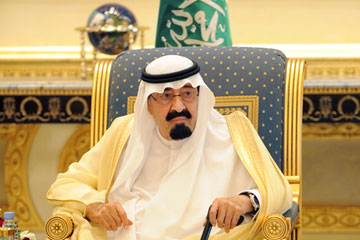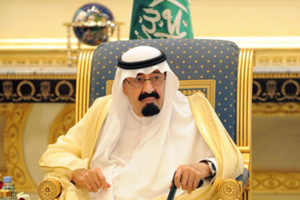In addition, the Kingdom froze new projects in the fourth quarter of 2015, Bloomberg reported, citing sources in the government of the kingdom.
Saudi authorities are considering the possibility to reduce investment costs by 10% or more, which account for about $ 102 billion this year. Spending on wages in the public sector will not be included in the saving programme.
According to the International Monetary Fund, the Arab world's largest economy can get the budget deficit in the amount of 20% of GDP this year. Oil accounts for about 90% of total revenues, and the dizzying fall in prices is putting tremendous pressure on the financial system of the country.
Saudi Arabia needs "a comprehensive reform of energy prices, controlling payroll in the public sector and increase in the efficiency of public investments," the IMF said earlier in August 2015
- The sharp drop in oil revenues and ongoing cost increases will lead to a very large budget deficit this year and in the medium term, will undermine the financial buffers accumulated during the last decade, - the IMF report says.
Recall that the foreign exchange reserves of Saudi Arabia fell to its lowest level since 2013 due to low oil prices, whilst the demand for loans by private companies is slowing.
The reserves has been reducing for the seventh month in a row and are $ 654.500 mln. as of August 2015. This is the lowest level in two and a half years.
At the same time, the volume of loans in the private sector grew by only 8.4%, the lowest since 2011
Now, the Arab world's largest economy is showing signs of fatigue, forcing the government to borrow large amounts of money, as well as to look for options to save budget.
According to experts of the investment bank EFG-Hermes, the factor, that slows down the demand for loans, is still uncertain.
The private sector is waiting for a greater clarity on issues relating to the public spending cuts, - they said.
The economic growth of the kingdom is likely to fall to 3% this year, according to the median forecast of 11 economists surveyed by Bloomberg. The budget deficit could reach an impressive 20% of the country's GDP, according to IMF data.
The continuing decline in oil prices makes Saudi Arabia save more and more, as well as it causes need to return tens of billions of dollars that are kept abroad.
Bloomberg reports that Saudi Arabia has already withdrawn $ 50-70 billion that had previously been invested around the world with the help of management companies.
The withdrawal has been happening all the past six months.
The stunning amount is a sign that the major OPEC producers have to fight for financial resources to cope with a growing budget deficit, as well as cover the costs of the military campaign in Yemen.
Sovereign Fund of Saudi Arabia has reached its maximum volume in August 2014 to $ 737 billion. Since the money dwindled, as oil prices collapsed by more than half.
As of July 2015, the fund's assets were $ 661 billion, as the authorities were forced to sell foreign currency for budgetary needs.
source: bloomberg.com
Saudi authorities are considering the possibility to reduce investment costs by 10% or more, which account for about $ 102 billion this year. Spending on wages in the public sector will not be included in the saving programme.
According to the International Monetary Fund, the Arab world's largest economy can get the budget deficit in the amount of 20% of GDP this year. Oil accounts for about 90% of total revenues, and the dizzying fall in prices is putting tremendous pressure on the financial system of the country.
Saudi Arabia needs "a comprehensive reform of energy prices, controlling payroll in the public sector and increase in the efficiency of public investments," the IMF said earlier in August 2015
- The sharp drop in oil revenues and ongoing cost increases will lead to a very large budget deficit this year and in the medium term, will undermine the financial buffers accumulated during the last decade, - the IMF report says.
Recall that the foreign exchange reserves of Saudi Arabia fell to its lowest level since 2013 due to low oil prices, whilst the demand for loans by private companies is slowing.
The reserves has been reducing for the seventh month in a row and are $ 654.500 mln. as of August 2015. This is the lowest level in two and a half years.
At the same time, the volume of loans in the private sector grew by only 8.4%, the lowest since 2011
Now, the Arab world's largest economy is showing signs of fatigue, forcing the government to borrow large amounts of money, as well as to look for options to save budget.
According to experts of the investment bank EFG-Hermes, the factor, that slows down the demand for loans, is still uncertain.
The private sector is waiting for a greater clarity on issues relating to the public spending cuts, - they said.
The economic growth of the kingdom is likely to fall to 3% this year, according to the median forecast of 11 economists surveyed by Bloomberg. The budget deficit could reach an impressive 20% of the country's GDP, according to IMF data.
The continuing decline in oil prices makes Saudi Arabia save more and more, as well as it causes need to return tens of billions of dollars that are kept abroad.
Bloomberg reports that Saudi Arabia has already withdrawn $ 50-70 billion that had previously been invested around the world with the help of management companies.
The withdrawal has been happening all the past six months.
The stunning amount is a sign that the major OPEC producers have to fight for financial resources to cope with a growing budget deficit, as well as cover the costs of the military campaign in Yemen.
Sovereign Fund of Saudi Arabia has reached its maximum volume in August 2014 to $ 737 billion. Since the money dwindled, as oil prices collapsed by more than half.
As of July 2015, the fund's assets were $ 661 billion, as the authorities were forced to sell foreign currency for budgetary needs.
source: bloomberg.com






